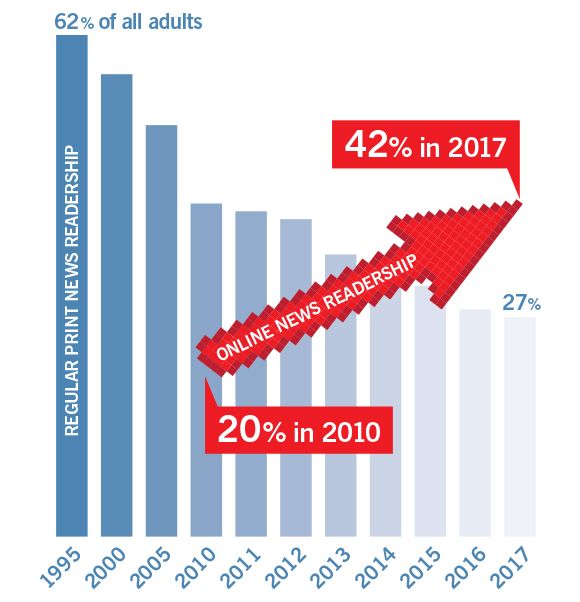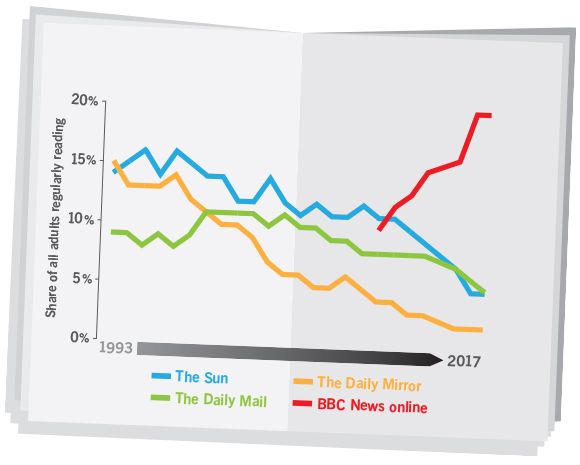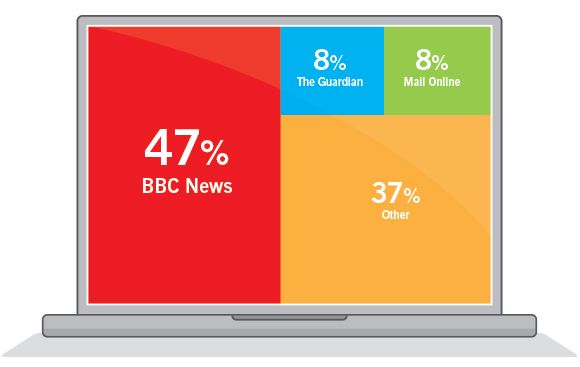“Fake news” is the great panic of our time. In Trump’s America, some of the space vacated by withering newspapers has been filled by ideologically driven websites, such as Breitbart, which play fast and loose with the facts, plunging the political conversation to new depths.
What about the UK? Well, the printed press has been on a slide here too, with readership more than halving since the 1990s; online news readership has doubled since 2010. But contrary to what you might think, this has not led to remorseless dumbing down.
In absolute numbers, the papers that have slid the furthest are those that used to sell the most—the sensationalist tabloids.
Meanwhile, since 2010, the number of regular readers of the BBC News website has doubled, from 10 per cent to 20 per cent of all adults—making it far better-read than any single newspaper.
Some still get their “Freddie Star Ate My Hamster” fix elsewhere on the net, but fewer read the old red-tops for online news than the Guardian. And while MailOnline is bigger, it is still has only a fraction of the Beeb’s news readership.
The BBC enjoys roughly the same readership as all other news websites in combination. That makes the question of whether the BBC fulfils its mission to report fairly a pressing one.
But many will be reassured as well as surprised that the big winner in the online world is not some upstart zealot, but trusted old Auntie.
Old news
Fewer people are reading printed papers, as more get their news online.

Good news?
It’s the printed tabloids who have taken most of the tumble, while the BBC’s online readers have soared.

The news agenda
Websites, many of which started out in print, often have a political slant. But in market share of news online, the BBC dwarfs them all.

Note: For printed papers “regular” is defined as reading at least three times a week. For news websites “regular” means reading at least daily. Figure 3 shows most visited news website, among those who read news online
Source: British Social Attitudes












